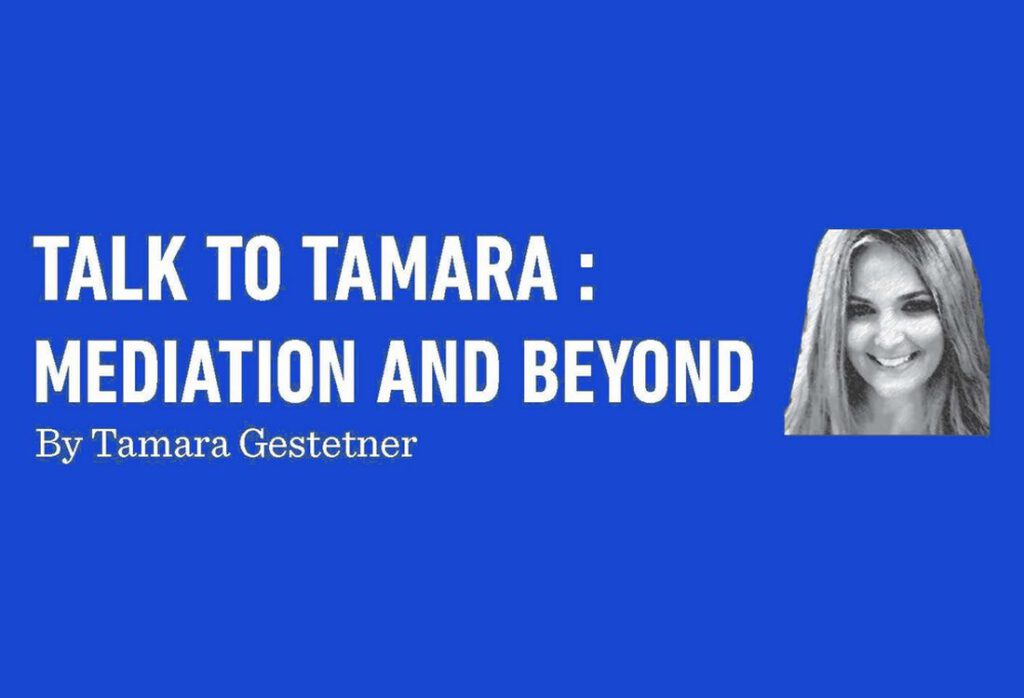What We Carry Until We Speak
They hadn’t been together in years.
Fourteen siblings, each carrying different versions of their childhood, had not spoken for a decade. A few still spoke to each other mostly out of habit, but for the most part, they were distant—not out of hate, but out of self-protection. Because when you’ve been hurt by close family members, sometimes it’s easier to love from afar.
They came into the room to talk about their mother’s will. But that was just the reason on paper. What brought them here—truly—was a lifetime of tension that had been shoved into the corner for too long. A sick mother. Years of dysfunction. Childhoods shaped more by survival than connection. There was resentment. Guilt. Silence. And underneath it all, a quiet longing that maybe it wasn’t too late to come back to each other.
You could feel the tension right away: the stiffness, the careful tone. Everyone was trying to protect themselves—from each other, from disappointment, from saying too much. But they showed up. And for families with this kind of history, that’s no small thing.
In the beginning, they kept things surface-level: who gets what, what their mother wanted, what the paperwork said. But their voices cracked when they spoke. They interrupted each other more than they meant to. Some looked down the entire time. You could feel how much they were holding back. And then it happened, as it often does during mediation. Someone said the thing that cracked the whole room open.
“I raised half this family and no one ever said thank you.” That was it. Nothing dramatic. Nothing accusatory. Just one simple truth.
Silence followed. Not defensive silence, not tense silence, just a stillness.
Then someone else quietly spoke: “I didn’t know you felt that way. I thought you resented me for leaving.”
Another: “I always thought you hated me. I didn’t know you were hurting, too.”
And then, softer still: “I missed you.”
That’s when the work really began.
Not the legal work. The emotional work.
The kind that can only happen when people feel safe enough to stop performing and stop pretending that they’re fine. To stop holding their breath every time they walk into a room with someone who hurt them or whom they hurt.
What many people don’t understand is that mediation isn’t just about resolving conflict, it’s about creating the kind of space where honest dialogue can finally happen. Sometimes people come in expecting to negotiate assets or agreements. But what they really need is a place to grieve the version of family they never got to have.
We live in a world that celebrates “getting over it.” But real healing doesn’t come from pretending that something never happened. It comes from naming it. From saying, “This is what I went through. This is what it felt like.” And from someone else, even if they see it differently, saying, “I hear you.”
These moments aren’t clean or dramatic. There’s no music playing in the background. They’re uncomfortable. Tender. Sometimes they’re clumsy. But they matter. And sometimes, they’re the first real step toward something better.
People think mediation is about figuring out legal matters and ending relationships with dignity. And yes, that’s part of it. But so much of what really happens in the room is emotional. It’s the softening that happens when someone who’s been angry for years finally says, “I was hurt.” It’s the shift that happens when someone realizes their sibling wasn’t the villain, just another kid doing their best in a hard situation. It’s the heartbreak of recognizing how much time has passed, and the quiet hope that maybe, even now, something can still be rebuilt.
I see it in coaching sessions too: people coming in saying they’re ready for a career change, but underneath it lies a truth, that they feel invisible, that they don’t know who they are anymore, or they’re afraid to admit that they want something more. They don’t need a résumé overhaul. They need permission. Permission to feel what they feel. Permission to say it out loud. Permission to become someone new without needing everyone’s approval first.
There’s something universal in that family’s story. Most of us carry a version of it (maybe not fourteen siblings and a mother’s will), but a relationship we’ve left unattended. A version of ourselves we’ve shut down. A truth we’ve been too scared to share. We all have that one conversation we’re avoiding, that one person we’ve written off because the relationship was too hard to repair, that part of our story we’ve convinced ourselves doesn’t need unpacking.
What if healing doesn’t come from fixing everything, but simply from being brave enough to tell the truth?
That family didn’t walk out of my office perfectly reconciled. No one hugged or tied it up with a neat little bow. But they walked out changed. Something inside them had shifted. Something inside them had softened. They said the things they hadn’t been able to say for decades. And even if nothing changed overnight, even if some of the fractures remained, they had opened a door. They had chosen truth over silence, and that’s how change begins.
Healing doesn’t always look like resolution. Sometimes, it just looks like people finally sitting across from each other, saying, “I want to understand where you’re coming from.” Sometimes, it sounds like, “I was doing my best,” or “I didn’t know,” or “That hurt me.” And sometimes, healing is simply showing up: scared, unsure, and still hurting, but willing to try.
If you have a question about life, career goals, a situation you’re struggling with, or a topic you want to explore, send it my way and I will address it in a future article. Whether it’s about careers, relationships, personal growth, or navigating life changes later in life, I want to hear from you. Email me at [email protected]. Let’s talk about life, success, failure, reinvention, and everything in between. Because if there’s one thing I know for sure, we are never done evolving. n
Tamara Gestetner is a certified mediator, psychotherapist, and life and career coach based in Cedarhurst. She helps individuals and couples navigate relationships, career transitions, and life’s uncertainties with clarity and confidence. Through mediation and coaching, she guides clients in resolving conflicts, making tough decisions, and creating meaningful change. Tamara is now taking questions and would love to hear what’s on your mind—whether it’s about life, career, relationships, or anything in between. She can be reached at 646-239-5686 or via email at [email protected]. Please visit TamaraGestetner.com to learn more.











